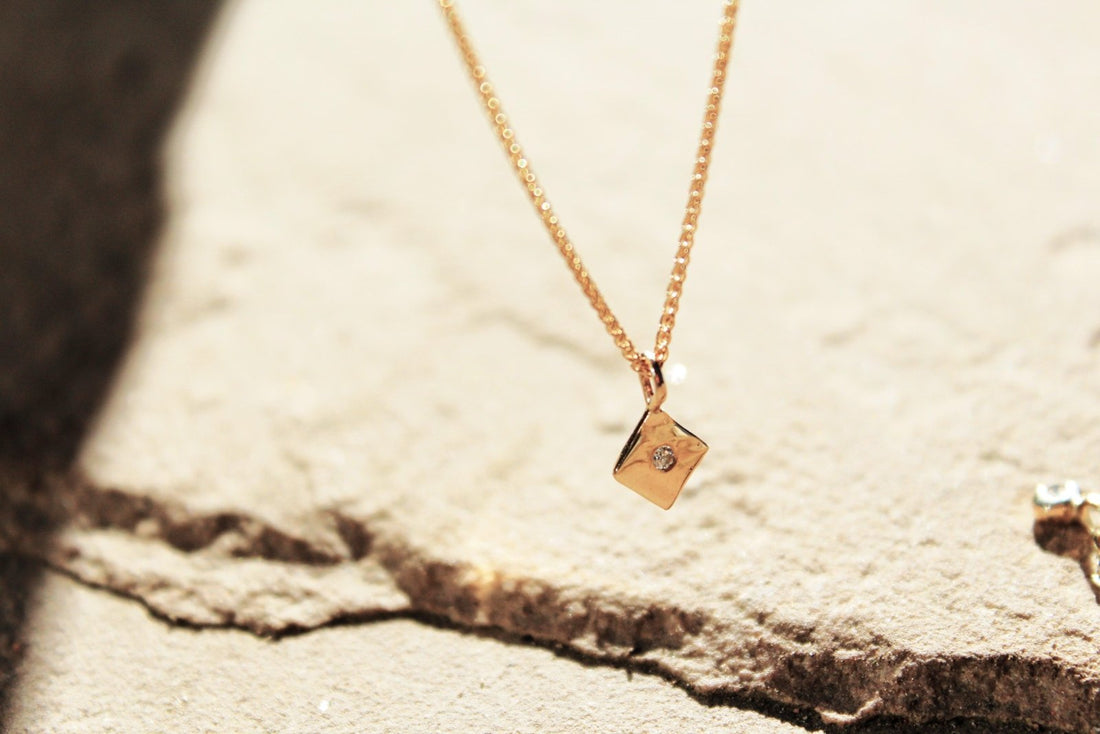
Is Jewellery Vegan? 4 Reasons why it might not be
Share
The growing popularity of veganism has led many people to re-evaluate their purchasing habits and consider the ethics behind the products they buy. Jewellery is no exception to this trend. While many people assume that jewellery is inherently vegan, there are few reasons why this may not be the case. Below are four common reasons why your jewellery might not be vegan. By understanding these factors, you can make informed decisions when it comes to purchasing jewellery that aligns with your values and beliefs.
Gems
Non-vegan gems refer to gemstones that are derived from animals, such as pearls or coral. Pearls are formed inside the shells of molluscs, while coral is made up of tiny marine animals called polyps. These gems are considered non-vegan because they are obtained from living creatures, often through invasive or damaging harvesting methods. For example, pearl divers may harm or kill the molluscs to retrieve the pearls, and coral reefs are often destroyed in the process of harvesting coral.
For these reasons, if you follow a vegan lifestyle you may choose to avoid jewellery made with these materials and instead opt for synthetic or ethical alternatives.
Metals
While precious metals are not derived from animals, they can still raise ethical concerns for those who follow a vegan lifestyle. The production of precious metals often involves environmentally damaging and exploitative practices, such as mining and extraction. Gold is often associated with deforestation, soil erosion, and water pollution. Similarly, platinum mining has been linked to air and water pollution, as well as the displacement of indigenous communities. The production of precious metals can also have negative impacts on animal habitats. Therefore you may wish to opt for more ethical and sustainable alternatives, such as recycled, fairtrade or ethically sourced metals.
Tools
Some jewellery making tools may not be vegan friendly due to their use of animal by-products. For example, some brushes used for polishing or applying coatings may be made from animal hair, such as horsehair, boar bristle or wool. Polishing compounds often contain animal fats and raw hide mallets are commonly used which are made with leather. Beeswax is often used for lubricating saws and cutting tools. Some jewellery may also contain adhesives or coatings made from animal products, such as shellac or casein.
The use of these materials in jewellery making raises concerns for those who follow a vegan lifestyle. Fortunately, there are now many synthetic and plant-based alternatives to these tools.
Labour
The manufacture of jewellery can involve a range of labour practices that may not align with a vegan lifestyle. Many jewellery manufacturers employ workers in developing countries, where labour laws and protections may be weak or non-existent. As a result, workers may be subjected to low wages, long hours, and unsafe working conditions.
The mining and extraction of materials used in jewellery making can be hazardous, particularly for those working in mines or in close proximity to hazardous chemicals. Child labour is also a concern in some parts of the world, where children may be forced to work in mines or other hazardous environments. While it may be difficult to know the full history of the materials in a piece, choosing brands that are transparent about how and where their jewellery is made is important for ensuring that their values align with your own.
There are several reasons why your jewellery might not be considered vegan, from the use of animal-derived materials to environmentally damaging production practices. It's important to note, that veganism is not about being perfect but about choosing the most ethical options when it comes to animal exploitation (humans included). Choosing brands that align with your values and beliefs means you can make a positive impact on the world while looking stylish and chic.
